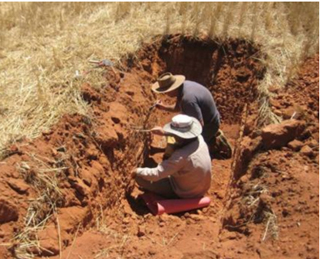
The study, carried out on a farm in an arid area 100 km northeast of Geraldton in Western Australia, showed ants and termites help improve water infiltration and soil nitrogen levels. Effectively they play a similar role in dry climates to earthworms in wet climates.
“The areas of the farm where we didn’t apply pesticides produced a 36% higher yield of wheat than the control area”, said Dr Nathan Lo, from the University of Sydney’s School of Biological Sciences, the co-author of a paper published today in Nature Communications.
“There are two main reasons we think this has happened. Firstly, the termites and ants create a lot of tunnels under the soil when they forage away from their nests, and this helps water absorption. This is particularly important in dry areas where rain is very sporadic.
“Secondly, bacteria in termite guts are able to fix significant amounts of nitrogen from the air. Some of this nitrogen is transferred to termite tunnels, helping to improve plant growth”.
Dr Lo said the results were exciting as they promised to reduce the need for increasingly expensive and environmentally harmful petroleum-based products such as herbicides, pesticides and fertilisers.
“The number of arid farming areas, particularly in a country such as Australia, promises to increase as a result of climate change. To find out that ants and termites can increase crop yields in this way is a really exciting result”.
Read the scientific publication here:
Ants and termites increase crop yield in a dry climate
Evans, Dawes, Ward, Lo (2011) Nature Communications, 2: 262
